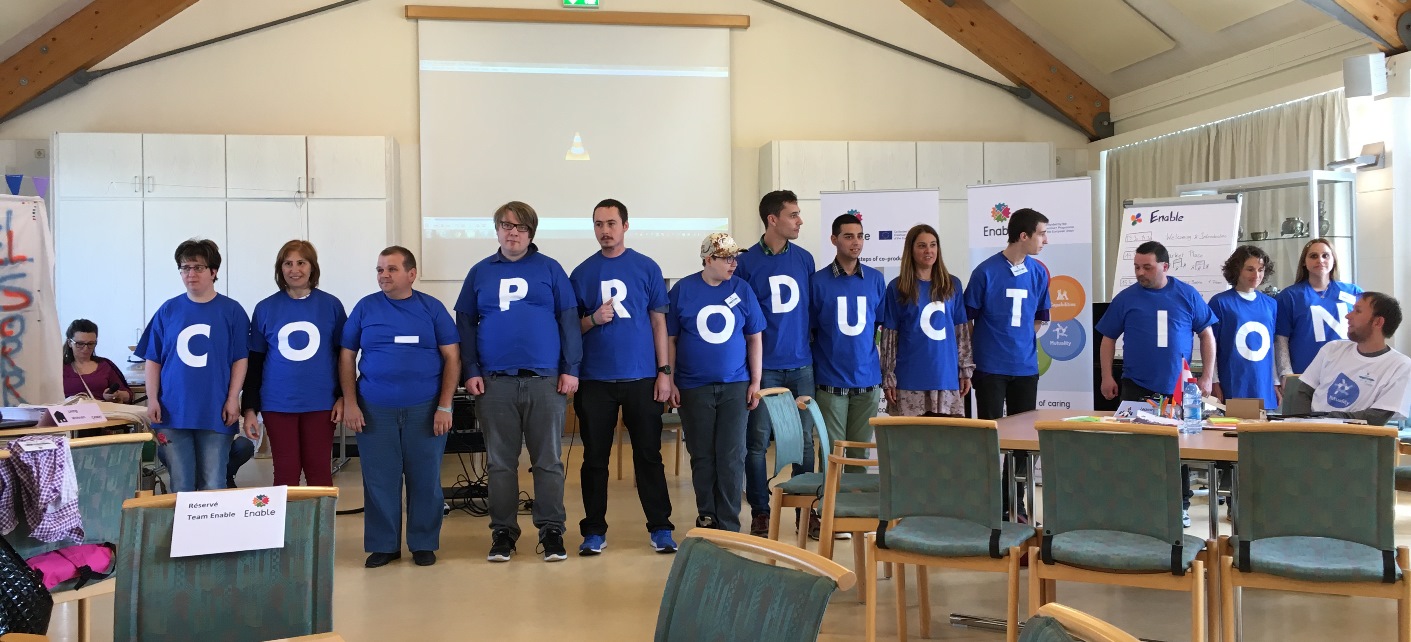Project
The ENABLE project allowed a very committed partnership to test co-production as a way to provide services for people with intellectual disability. ENABLE was overall a successful project and left the partnership with the desire to go a little further and develop an incubator methodology based on co-production addressed to people with intellectual disability to foster the access to entrepreneurship and self-entrepreneurship.
The IN-CUBA (Incubators for CO-productive Enterprises and Social Inclusion) Project wants to foster social inclusion by developing an incubation methodology based on co-production addressed to people with intellectual disability. Working on co-productive approaches has highlighted the capacity of users to become protagonists and have an active role, opening the doors to new possibilities and further developments. In fact, the scientific literature and several success stories confirm that, through the appropriate support, people with intellectual disability succeed in concretizing ideas through long-term projects, especially projects that lead to the creation of companies. This opens up new opportunities for the development of people’s employability and social inclusion. However, if at present national systems tend to promote entrepreneurship and innovation, these programmes are rarely accessible to people with intellectual disability and no measure is put in place to investigate the potential impact entrepreneurship can generate for them and their entourage.
An incubator is an organisation that helps new and start-up companies to develop by providing support services and enabling access to the resources they need. In the context of IN-CUBA however, we can define incubator as a support for the development of projects and ideas… a methodology based on co-production that supports the development of ideas and projects to transform them into enterprises (considered in its widest meaning).
IN-CUBA aims to support and assess new approaches to the access to entrepreneurship for people with intellectual disability reducing disparities and promoting inclusion. To these goals the action foresees to:
- Develop a methodology based on co-production to incubate ideas, identify the ways and source of funding, and transform them in enterprises;
- Enable users to be equal partners within the planning and development of a project, thus enhancing self-determination;
- Provide opportunities for self-development and inclusion for people with intellectual disabilities so that they can be acknowledged as people that can contribute to the development of their community.
- Testing the results in dedicated pilot actions aimed at the setting up of enterprises;
- Evaluate the impacts of the entrepreneurial process on the quality of life of the users as well as the overall impacts of the project in terms of social inclusion;
- Disseminate project experience and outcomes, also in view of enhancing social representation and promote the adaptation of methodologies at local level;
- Promote the development, testing, and implementation of innovative practices in the field of training for professionalisation;
- Promote activities that could better prepare professionals on equity, diversity and social inclusion in the training / learning environment.
To these goals, a very committed partnership is engaged in developing a 36 Months action to help addressing diversity and promote shared values, equality, non-discrimination and social inclusion through innovative and integrated approaches. The Project is coordinated by APEMH with the support of ARFIE and it involves 8 partners from 5 European countries.
The project is based on research and analysis and real testing, and all the foreseen activities are based on co-production and will see users as protagonists.
check out the IN-CUBA results here

The Project IN-CUBA is co-financed by the ERASMUS+ Programme of the European Union

